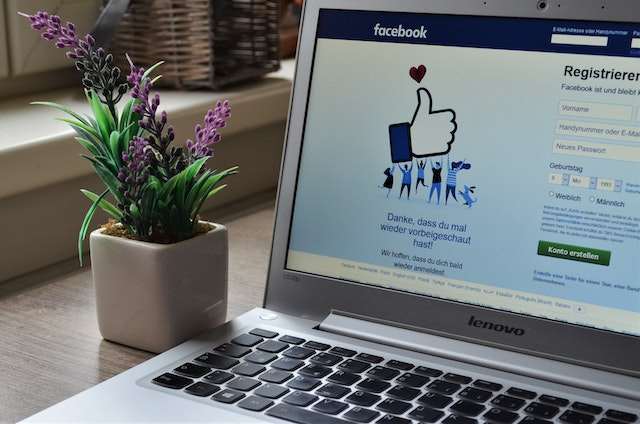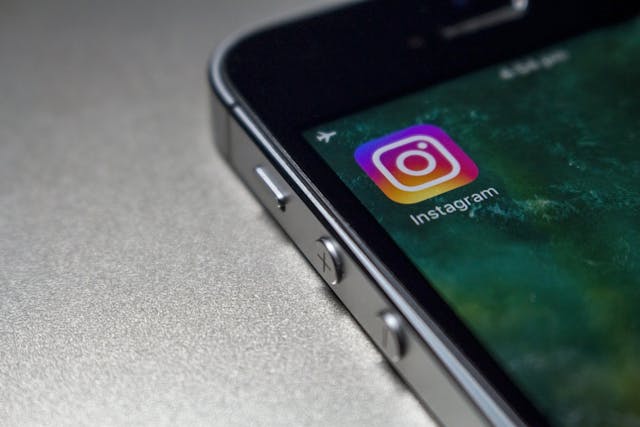The Psychology Behind Facebook Post Likes: What It Means for You

Have you ever experienced the rush of having your Facebook post liked by a stranger? Or you feel disappointed when your post doesn’t receive many likes. The little thumbs-up symbols got discovered to conceal a deep psychological meaning. In this blog, we will discuss the significance of Facebook post likes and how to interpret them.
The “likes” on a Facebook post represent more than a numerical value. They represent a deeper component of our digital and social life. Explore the science behind why individuals like particular messages on social media to understand what motivates them.
If you want to know why your Facebook posts are getting likes, you must know their psychology. So, it can help us, for one thing, to be more self-aware in our social media interactions.
We may distinguish between using likes for self-affirmation and encouraging others.
Studying posts like psychology may boost online navigation. If we understand how likes affect our emotions, we may be more aware of how they affect others.
This blog post will discuss the various aspects that affect Facebook post popularity.
Why Do We Crave Facebook Post Likes?
Have you ever put anything on Facebook and waited for others to click the “like” button? In such case, you have company. Likes on Facebook are gold to us, and there’s a scientific explanation.
All humans have a deep-seated need to get liked and accepted by those around them. Our drive to belong to a community stems from a time in our development when doing so was crucial to our existence. So, we have an innate need for our contemporaries’ approval to feel safe and accepted.
Getting a lot of Facebook post likes makes us feel wanted and accepted, which satisfies this urge. Likes on our postings show that others get interested in and appreciate what we share. Likes boost our confidence and strengthen our relationships with others.
We desire accolades for the dopamine high. The brain produces dopamine when we get praise or chocolate. When someone likes our content, our brains produce dopamine, making us happy.
Yet, this might develop an addictive cycle in which we want more likes to maintain our bliss. This is why not getting enough likes on a post might make some individuals nervous or agitated. They want more than affirmation; they want to feel good about themselves.
While on Facebook, remember that likes may give you a dopamine high and meet your need for social acceptance. But you must be careful that it doesn’t become an obsession or a measure of your value. Create what brings you joy, and stop worrying about how many likes it will get.
The Impact of Facebook Post Likes on Our Mental Health:
To what end do you think people use Facebook? Getting more “likes” is proper motivation. People give a post the virtual equal of a thumbs up by clicking the “Like” button. Did you know your mood may be affected by how many Facebook post likes you receive?
Comparing oneself to others is an example of social comparison. Facebook and other social media sites promote pointless comparisons between users. If you look at a friend’s Facebook profile photo, you can get the impression that they live a charmed existence. The adverse effects on your self-esteem might be significant. Keep in mind that not everything you read on Facebook is factual. Often, people only share the positive events in their life online.
Negative mental health consequences have linked to excessive social media comparison. Facebook addiction may cause depression, anxiety, and other mental health issues. It’s tempting to compare ourselves to others’ posts and feel inadequate. We may feel bad when compared to others.
The amount of Facebook post likes received might also affect its viewers’ emotional well-being. It’s nice to have your efforts rewarded with positive feedback from your Facebook friends. It’s the same as receiving a high five or a clap on the back. Yet, if we get dependent on them, we risk developing an addiction. When we’re addicted, we’ve come to believe that we need external stimuli to achieve emotional fulfilment. We get depressed or frustrated if nobody loves our posts.
Remember that social media popularity is not the pinnacle of success. Our contentment cannot be contingent on their actions alone. Finally, it’s important to remember that only some things we read or see on Facebook are factual. One should be content with oneself and not seek validation from other sources.
The Power Dynamics of Facebook Post Likes:
Often, our impressions of a post and its author get influenced by the number of likes it receives. When we see a post with many “likes,” we assume its well-liked and worthy of attention. Those who have their postings liked are more likely to consider themselves prominent members of the community.
Likes on Facebook and the Importance of Social Influence:
Social influence refers to the notion that our actions get affect by those we interact with. It might take the shape of peer pressure to follow the latest trends on Facebook. The mere presence of many “likes” on a post may make us more willing to give it one of our own, regardless of whether we agree with the sentiment expressed. This pattern might cause the most popular posts to get even more likes, while the least popular articles go to the wayside.
The Impact of Likes on the Popularity and Status of Individuals on Facebook:
The number of likes a Facebook page or user has may affect their standing and visibility on the social network. Users may accord greater credibility to those that often get many likes on their postings. It may result in a higher profile, leading to invitations to more prestigious gatherings. On the other side, those who don’t get many likes may start to feel unappreciated or unloved.
The Use of Likes as a Tool for Social Manipulation:
You may use likes to influence people’s opinions of you. To see more popularity, some users would establish false accounts to “like” their posts or pay for more likes. Using this to gain an inflated feeling of self-importance and manipulate others around you is possible.
In conclusion, the number of “likes” on a Facebook post affects how and what we do on the site. By knowing the rationale behind Facebook’s “like” button, we can better choose how and who to interact with.
The Ugly Truth Behind Facebook’s Like System:
While having your social media postings favored by others flattering, doing so might also harm your mental health. According to studies, those who spend much time on social media seeking Facebook post likes and acceptance are likelier to suffer from sadness, anxiety, and poor self-esteem.
The phenomenon of “like farming.”
Some individuals and businesses engage in “like farming” to amass the most significant number of endorsements. It makes false or misleading claims about a topic to get as many shares and likes as possible. The result may be the proliferation of incorrect information.
The dangers of clickbait and misleading content in the pursuit of likes
Another strategy for gaining Facebook “likes” is the usage of clickbait. Clickbait is content create only to attract clicks, sometimes at the expense of quality and relevance. It is risky because it may tempt users to visit websites or download malicious software.
Taking the help of a third-party website is a good idea here. You can try FBPostLikes as they deliver likes that are real and from active accounts. They have different plans for different requirements, so they never burden you with any unwanted supply. Never share your credentials, as the post URL is sufficient to fetch Facebook post likes for you.
How does Facebook post to contribute to the proliferation of false information?
Sharing content with many “likes” might help disseminate false or misleading information. People may attribute extra credibility to a claim because it has many “likes,” even if incorrect. It is particularly risky when discussing sensitive matters like national security or public health.
It’s crucial to aware of the risks associated with Facebook post likes, although they might make you feel good. Remember that your value does not depend on the number of likes you get, and always verify claims before sharing or liking a post.
An algorithm determines Facebook’s newsfeed prioritization. The postings you see get select like those of a computer program. Likes and comments get taken into account by the algorithms. The current amount of likes will not get shown. Instead of seeing how many people liked your post, you’ll see who wanted it.
Facebook is constantly evolving, and its users have a hand in making it better via their likes and comments. You may share anything you like and dislike about Facebook with the company. You may use Facebook to avoid harmful behaviors. Also, You may compare yourself to others or base your self-worth on the number of likes you get.
Conclusion:
As a result of user feedback, Facebook has modified how it displays post likes. Although external validation is essential, social media offers several ways to increase self-esteem.
Let’s not let Facebook post likes damage our self-esteem by comparing ourselves to others or worrying about “likes.” Tell them about Facebook’s pros and cons.
Realizing that Facebook is a small part of our lives and that we are all unique is crucial. Let’s communicate on Facebook to share interests, create friends, and broaden our perspectives.

